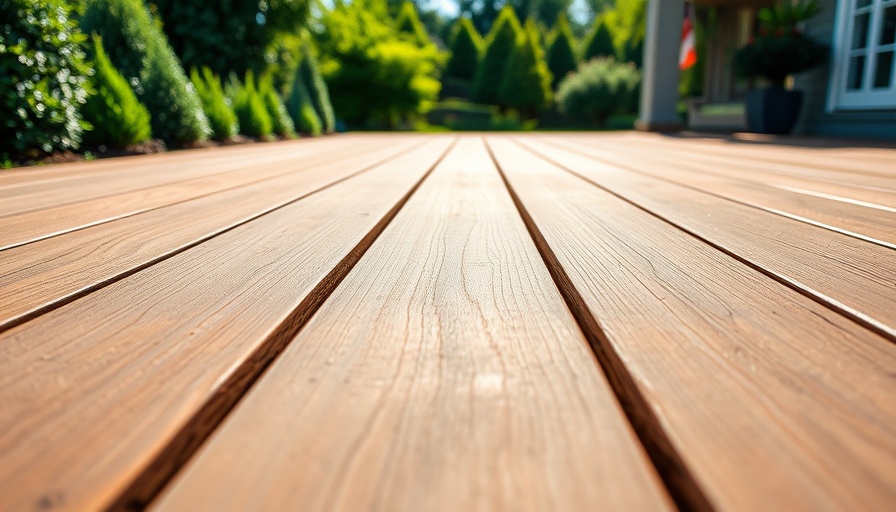
Understanding the Current Debate on Composite Decking
As the gardening world evolves, so too do the materials we use to enhance our outdoor spaces. One topic of significant debate is the use of composite decking—a blend of wood fibers and plastic that has grown increasingly popular due to its durability and low maintenance. However, there's a confusing narrative surrounding a potential ban on such materials in the UK, which we aim to clarify.
Clarifying the Misconceptions: Is There a Ban on Composite Decking?
Despite whispers of a ban on composite decking, the reality is far less restrictive. While professional organizations express caution over synthetic materials like plastic grass, there's no overarching legislation prohibiting composite decking. The Society of Garden Landscape Designers (SGLD), the Association of Professional Landscapers (APL), and the Landscape Institute (LI) each have their positions on the issue. The SGLD, for example, advocates against all plastic turf while others remain neutral.
The British Association of Landscape Industries (BALI) echoes this neutrality, emphasizing sustainability without implementing a ban on synthetic alternatives. It's critical for homeowners to understand that while industry voices guide us, ultimately, local regulations and individual project needs dictate what materials can be utilized.
The Importance of Evidence-Based Decisions
When discussing potential restrictions on materials, it's essential to navigate the conversation through an evidence-based lens. Expert organizations argue for bans only when there’s solid proof of environmental harm. For instance, broad-based prohibitions may lead to unintended consequences, such as increased use of concrete or poor-quality substitutes that can negatively impact drainage and local ecosystems.
Instead of adopting blanket bans, experts suggest implementing targeted approaches based on site-specific conditions. This nuanced strategy not only respects the diversity of environmental challenges but can also promote the longevity of preferred materials like composite decking.
Addressing the Risks of "Banning Creep"
One of the most significant concerns with outright bans on synthetic landscaping materials is the risk of what experts refer to as "banning creep." This is a phenomenon where initial prohibitions on one material lead to increased pressure to eliminate others in a cascading effect. While the aim may be to improve sustainability, it could inadvertently result in the use of materials that are less environmentally friendly in the long run.
For instance, if composite decking were to be banned, one might see an uptick in the use of cheaper, lower-quality alternatives that do not hold up over time, creating more waste and ultimately harming the environment rather than helping it.
Navigating the Practicalities of Decking Choices
For homeowners contemplating which materials to use for their gardens, understanding the local regulations and potential impacts of their choices is vital. Seeking advice from professionals can guide you in making the best decisions that align with environmental standards while still enhancing the beauty and functionality of your outdoor environment.
Standard compliance, performance criteria, and specific impact assessments are valuable tools for homeowners facing these decisions. Rather than succumbing to fear of bans, focus on responsible practices and materials known for their quality and environmental integrity.
Conclusion: Engaging with Your Outdoor Space Responsibly
The conversation about synthetic materials like composite decking is more than just about bans; it’s about making informed decisions that benefit your home and the planet. Homeowners should engage with landscape professionals, understand their local regulations, and strive for materials that combine both beauty and sustainability.
As you reflect on the topics discussed here, consider how your choices in decking contribute to both your personal well-being and the health of your outdoor environment. Your garden is a reflection of your lifestyle choices—let it be a positive one that inspires future generations.
Call to Action: Explore your decking options today and consult professional landscapers to design a garden that reflects your sustainable living values!
 Add Row
Add Row  Add
Add 


Write A Comment